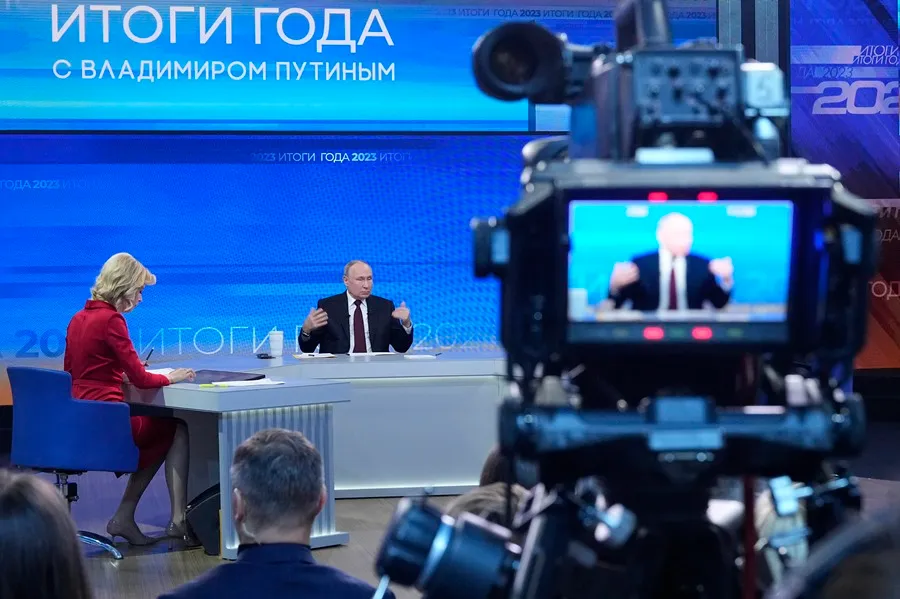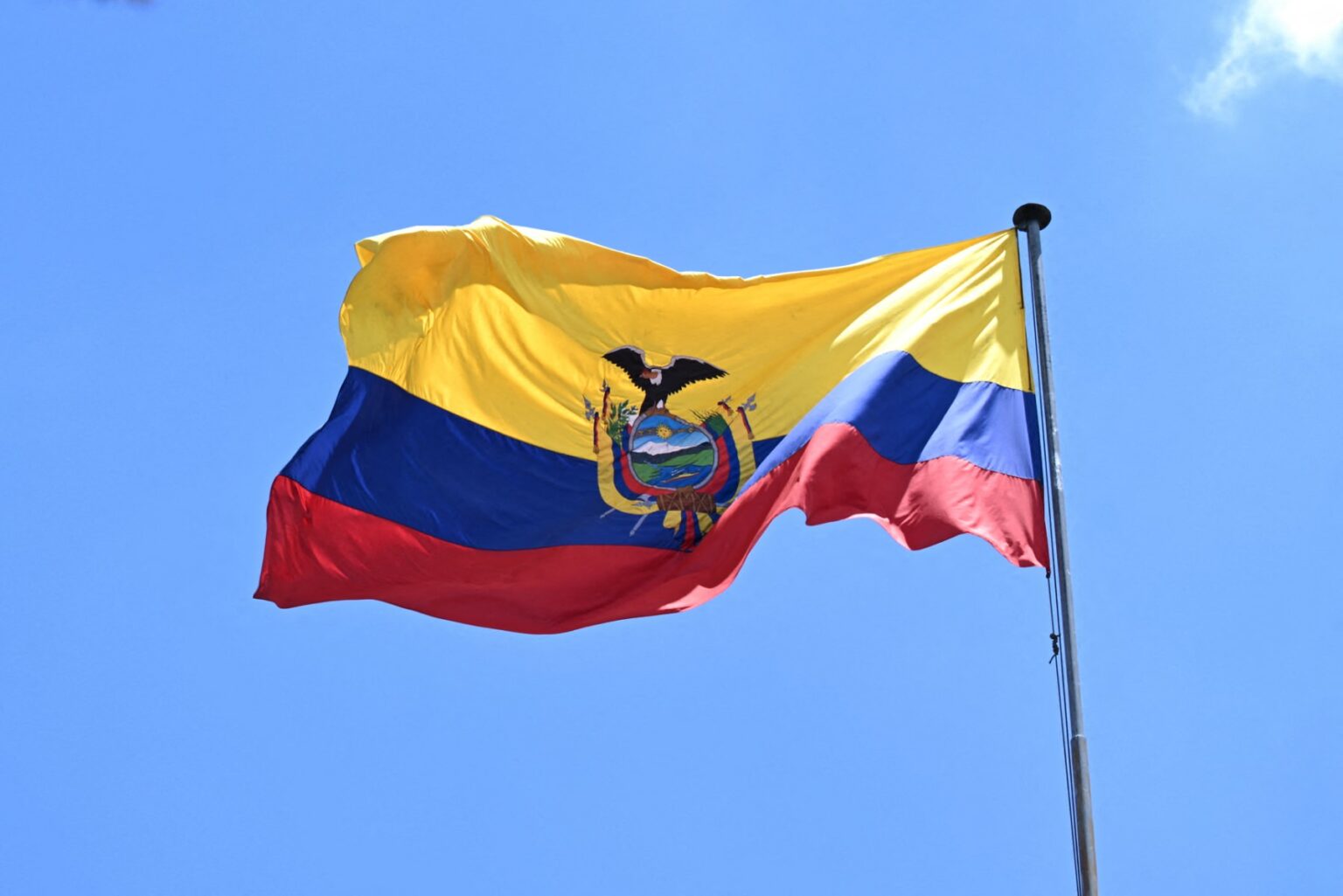International
Russia prohibits internet access to 81 European media

Russia announced today that it prohibits the broadcasting and access from its territory by internet to 81 European media, four of them Spanish, including the EFE Agency.
The measure is the response to the restrictions adopted on May 17 by the Council of the European Union against three Russian media – the RIA Nóvosti Agency and the newspapers Izvestia and Rossískaya Gazeta – and which entered into force today, Tuesday.
The list published on its website by the Russian Foreign Ministry includes the websites of the EFE Agency (efe.com) and El País, El Mundo and Televisión Española.
Regarding the media of 25 countries of the European Union (EU), “response measures are introduced to limit the issuance and access to their resources on the Internet from the territory of the Russian Federation.”
The statement emphasizes that the restrictions are adopted against means that “systemately disseminate unreliable information about the progress of the special military operation,” as known in Russia for the military campaign deployed in Ukraine since February 2022.
Among the 81 affected media there are also headlines such as the German newspaper Die Zeit and the magazine Der Spiegel; the Italians La Stampa and La Repubblica; the Portuguese Publico; the French Le Monde and Liberation; or the Dutch magazine Algemeen Dagblad.
It also includes television channels such as the Italian RAI; the French LC1 and Arte; the Irish RTE; the Portuguese RTP Internacional; the Dutch Nos or the Austrian ORF; in addition to the radio station Radio France.
In addition to EFE, the agencies whose access in Russia will be restricted are the French Agence France-Press and Agence Europe.
The Ministry of Foreign Affairs emphasizes that it had repeatedly warned at different levels that “politically motivated harassment” of Russian journalists and the “unfounded” prohibition of Russian media in the territory of the European Union “would not go unanswered.”
Moscow emphasizes that, as Brussels chose to choose the path of “escalation,” in this way it forced the Russian authorities to adopt “symmetrical and proportionate measures.”
“The responsibility for this development of events lies exclusively with the leaders of the EU and the countries that support this bloc,” he said.
In mid-May, the foreign spokeswoman, Maria Zakharova, warned that her country would take retaliatory measures against Western correspondents in its territory if the EU restricted the work of the Russian media.
“Until now they felt our love, now they will also have to feel our reprisals,” he said at a press conference.
He recalled that Moscow “will respond suddenly and in an extremely painful way for Westerners.”
“If even if it is a single Russian medium is subject to unfounded restrictions, it will have an impact on your colleagues here, in Russia. I’m referring to Western journalists,” he said.
Since the beginning of the war, Russia has restricted the access of foreign journalists to the activities organized by the Russian State and in some cases did not extend the work visa for some Western correspondents.
International
Colombia to Send High-Level Delegation to Ecuador to Ease Trade Tensions

Colombia’s Ministry of Foreign Affairs confirmed on Friday that, at the instruction of President Gustavo Petro, a high-level delegation will travel to Ecuador in an effort to normalize bilateral relations, which have deteriorated following the imposition of reciprocal tariffs.
“In line with Colombia’s policy of good neighborliness and the spirit of cooperation and integration that guides its foreign policy,” the Foreign Ministry said in a statement, adding that the delegation will be led by Foreign Minister Rosa Villavicencio and Defense Minister Pedro Sánchez.
“Following instructions from the Presidency of the Republic, and as has been publicly reiterated, the Colombian delegation expects to reaffirm Colombia’s offer of support to the Republic of Ecuador to strengthen control over phenomena stemming from transnational organized crime,” the statement said.
The Foreign Ministry noted that the delegation will attend the meeting with a full willingness to engage in dialogue and to seek concrete solutions to the unilateral measures that have affected the longstanding relationship between the two neighboring countries.
Trade tensions between Ecuador and Colombia escalated on January 21, when Ecuadorian President Daniel Noboaimposed a 30% tariff on Colombian products, citing a lack of cooperation in anti-drug efforts. Colombia responded with similar measures and the suspension of energy exports, while Ecuador increased transportation costs for Colombian crude oil.
Business associations in both countries have warned that the dispute is harming both economies and have called on the governments to resolve their differences through dialogue.
International
Super Bowl Halftime Show Puts Bad Bunny—and Immigration Politics—Back in the Spotlight

The long-standing argument that sports and politics should not mix may be put to the test on Sunday during the Super Bowl halftime show, which will be headlined by Puerto Rican superstar Bad Bunny, a choice that has sparked backlash from segments of the U.S. right wing.
Just one week after his headline-making appearance at the Grammy Awards—where he sharply criticized the United States’ anti-immigration policies—Bad Bunny will once again take center stage on the global spotlight with his performance at the NFL final in Santa Clara, California.
Beyond the expectations surrounding the show itself, speculation has grown over whether the artist could again use the platform to protest policies associated with the administration of former President Donald Trump, in front of an audience expected to exceed 120 million viewers in the United States alone.
In fact, one of the most popular Super Bowl prop bets this year revolves around whether the Puerto Rican singer will deliver a direct message against ICE (U.S. Immigration and Customs Enforcement), similar to the one he delivered at the Grammys last Sunday.
While few expect Bad Bunny to repeat such a pointed statement, the mere speculation highlights the delicate balance the NFL must manage during the most-watched broadcast of the year.
The world’s most powerful sports league has drawn criticism from the MAGA movement since announcing in September that Bad Bunny would headline a halftime show largely performed in Spanish.
Trump himself declined to attend the matchup between the New England Patriots and the Seattle Seahawks, despite having made history last year as the first sitting U.S. president to attend a Super Bowl. He described the musical lineup—which also includes outspoken critics such as Green Day—as “a terrible choice” that would “sow hatred.” In response, his supporters have organized an alternative event dubbed the “All-American Halftime Show,” featuring like-minded artists such as Kid Rock.
International
Venezuela Debates Broad Amnesty Law Covering 27 Years of Chavismo

Venezuela’s Parliament began debating on Thursday a sweeping amnesty bill that would cover the 27 years of Chavismo in power, while explicitly excluding serious human rights violations and crimes against humanity.
The proposed legislation, titled the “Amnesty Law for Democratic Coexistence,” was introduced by interim President Delcy Rodríguez, who assumed power following the capture of Nicolás Maduro during a U.S. military operation.
The legislative session was convened for Thursday afternoon, with lawmakers holding an initial discussion focused on the general principles of the bill. This phase precedes a consultation process with civil society, after which the proposal will move to a final debate examining each article individually.
According to a draft of the bill obtained by AFP, the amnesty would apply to individuals accused of crimes such as “treason,” “terrorism,” and “incitement to hatred,” charges that were frequently brought against political prisoners over the past decades. The scope also includes offenses ranging from acts of rebellion to punishments imposed for social media posts or messages sent through private messaging services.
The bill’s explanatory text emphasizes reconciliation, stating that it seeks to move away from “vengeance, retaliation, and hatred” in favor of “opening a path toward reconciliation.”
However, the proposal explicitly excludes from its benefits crimes such as “serious human rights violations, crimes against humanity, war crimes, intentional homicide, corruption, and drug trafficking.”
These exclusions, the text notes, are based on strict compliance with the Venezuelan Constitution, which already prohibits granting amnesties or pardons for such offenses.
-

 International4 days ago
International4 days agoEpstein Denies Being ‘the Devil’ in Newly Released Video Interview
-

 International4 days ago
International4 days agoSpain Seeks to Ban Social Media Access for Children Under 16
-

 International4 days ago
International4 days agoDelcy Rodríguez Takes Control of Chavismo as Venezuela Enters a U.S.-Supervised Transition
-

 International5 days ago
International5 days agoPetro Resumes Extraditions, Sends Top Criminal to U.S. Before White House Talks
-

 International5 days ago
International5 days agoMexico to Send Humanitarian Aid to Cuba Amid U.S. Threats Over Oil Shipments
-

 International4 days ago
International4 days agoHRW Warns Trump’s Influence Has Weakened Human Rights in Latin America
-

 International4 days ago
International4 days agoHypothermia Linked to Most Deaths During New York’s Recent Cold Spell
-

 International5 days ago
International5 days agoMexico Arrests Suspect in Shooting of Sinaloa Lawmakers
-

 Central America2 days ago
Central America2 days agoPanama Will Not Be Threatened, President Says Amid Rising Tensions With China
-

 International2 days ago
International2 days agoDíaz-Canel Calls for Talks With Washington Without Pressure as U.S. Tightens Oil Sanctions
-

 International2 days ago
International2 days agoVenezuela Debates Broad Amnesty Law Covering 27 Years of Chavismo
-

 International1 day ago
International1 day agoColombia to Send High-Level Delegation to Ecuador to Ease Trade Tensions
-

 Central America5 days ago
Central America5 days agoLaura Fernández Says She Will ‘Never’ Allow Authoritarianism in Costa Rica
-

 Central America2 days ago
Central America2 days agoBukele’s Approval Rating Climbs to 91.9% in El Salvador, Survey Shows
-

 Central America6 hours ago
Central America6 hours agoSalvadoran fans plan birthday surprise for Shakira at historic show
-

 International4 days ago
International4 days agoNFL Investigating Emails Linking Giants Executive to Jeffrey Epstein
-

 Sports4 hours ago
Sports4 hours agoShakira ignites El Salvador with near sold-out residency at Mágico González Stadium
-

 International1 day ago
International1 day agoSuper Bowl Halftime Show Puts Bad Bunny—and Immigration Politics—Back in the Spotlight


























